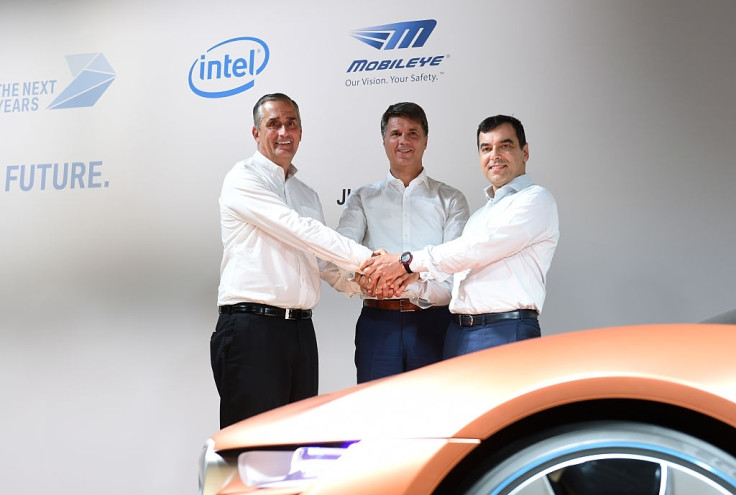Intel will build 100 highly autonomous self-driving cars in US, Europe and Israel
The cars will be able to handle most driving situations without falling back for manual driving support.

Making a bold move in the emerging self-driving market, Intel has detailed its plan to build autonomous cars for testing in Israel, Europe, and the United States. The chip maker hopes to get the first batch of vehicles on road by the end of this year and then scale the fleet to its full capacity with more than 100 automobiles.
The cars Intel plans to launch will come with Level 4 high-driving autonomy - the second highest classification of autonomous cars - and handle most driving situations without falling back for manual driving support.
Intel's announcement doesn't come as a complete surprise. The chipmaker recently acquired Mobileye, an Israel-based supplier of autonomous vehicle vision tech. The deal, which was officially closed on Tuesday (8 August), ensured that Intel had the right partner to jump on the bandwagon of self-driving vehicles - an industry already dominated by biggies like Google spinoff Waymo, Uber, Tesla and eyed by Qualcomm and Nvidia.
"Building cars and testing them in real-world conditions provides immediate feedback and will accelerate delivery of technologies and solutions for highly and fully autonomous vehicles," said Amnon Shashua, co-founder of Mobileye and the future senior vice president of Intel. "Our goal is to develop autonomous vehicle technology that can be deployed anywhere, which means we need to test and train the vehicles in varying locations." Test cars will be sent first to Arizona and then to Jerusalem, according to The New York Times.
Mobileye, a leader in areas like digital mapping and sensors, will remain based in Israel and work with Intel to demonstrate their combined capabilities in the form of a complete "car-to-cloud" system. Shashua said their upcoming EyeQ5 processor would make the fleet of cars twice as powerful as current models.
The vehicles are said to incorporate cameras, image-processing capabilities, microprocessors, and mapping technology, as well as a hybrid software system. Intel says the fleet will include "multiple car brands", but has not given in-depth information about the automakers building these cars.
© Copyright IBTimes 2025. All rights reserved.



















